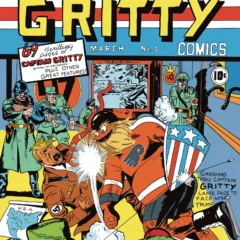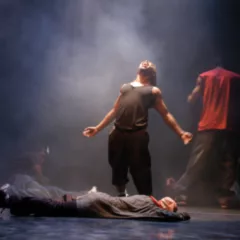[Donald enjoys a contemporary opera paying homage to jazz great Charlie Parker. Known as “Yardbird” and “Bird,” Parker was a key player in the development of bebop during the 1940s, and a transcendent jazz soloist and improviser. His longtime heroin addiction contributed to his death at 34. — the Artblog editors]
Miles Davis once said, “The history of jazz can be told in four words: Louis Armstrong. Charlie Parker.” Until a Louis Armstrong opera comes along, we have Charlie Parker’s Yardbird, thanks to Opera Philadelphia’s American Repertoire Program. This world premiere, which took place in the Kimmel Center’s Perelman Theater and is part of the Aurora Series for Chamber Opera, was co-commissioned and co-produced with Gotham Chamber Opera. Composer Daniel Schnyder conceived the work for tenor superstar Lawrence Brownlee in the titular role, carefully associating the color and technical flair of Parker’s music with Brownlee’s supple voice.
One noticeable theme of Opera Philadelphia’s 2014-2015 season is that its two operas commissioned for the American Repertoire Program have centered on two legendary people of their respective crafts: Oscar Wilde, a literary icon, and now Charlie Parker, a highly influential jazz improviser and composer. Some of his most noted jazz standards include “Yardbird Suite,” “Ornithology,” “Bird Gets the Worm,” and “Bird of Paradise”.
Beginning at the end
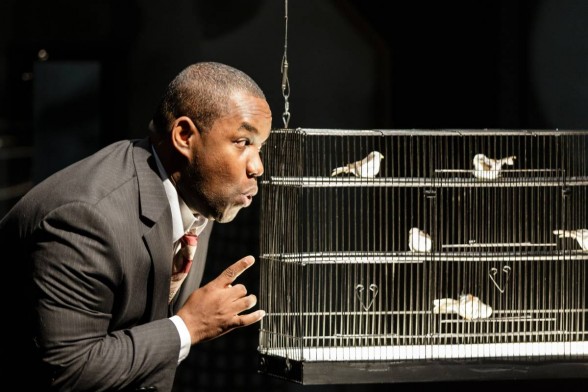
When the opera opens, we see a smoky jazz club–it’s Birdland, confirmed by letters spelling the name across the stage. The letters have pictures of famous jazz musicians, such as Duke Ellington, Miles Davis, Billie Holliday, and Sarah Vaughan. There are also doves in a cage. The day is March 12, 1955, the day Parker died from lobar pneumonia and a bleeding ulcer incomprehensibly too soon at 34 years old. Parker enters on stage as a ghost, already departed from the world, looking to compose an orchestral piece. This gives the audience the feel of some sort of heaven. Composing was certainly heaven for Parker, as it served as a place for him to be in his element, musically free.
The narrative of the opera is a bit open-ended when it comes to Parker and his place. There are scenes where he seems to be still alive and kicking; there are also other moments when he seems to be a ghost. It took a few scenes for me to realize that Parker’s character has already passed away, as that aspect was unclear.
In Parker’s solo scenes, the music is lyrical and somewhat melancholy, while the confrontational scenes have more potency, yet remain understated. Schnyder doesn’t completely nail the jazz element that is required for immersion in what Parker’s musical life was really like. However, in this operatic context, he is able to channel the bebop era into a more fluid, less showy score that allows for some unexpected flourishes and expressions in the singing.
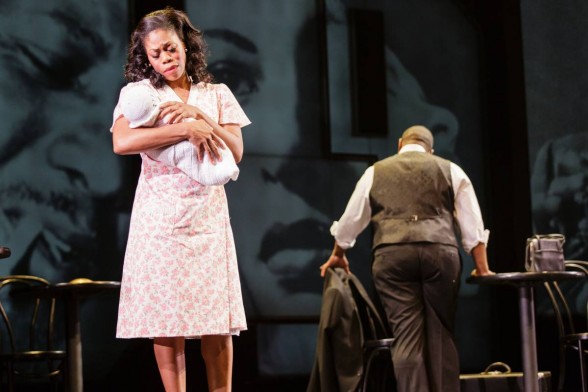
Throughout the opera, the instrumental women in Parker’s life each come to him to bid farewell. These women include his mother, three wives, and Nica, Parker’s friend, in whose segregated hotel suite he ultimately died. The only other male character present in the opera is, of course, Parker’s close friend and musical colleague, the incomparable Dizzy Gillespie. Gillespie is played memorably by Will Liverman (currently part of the Opera Philadelphia Emerging Artists Program), who captures his eccentric presence.
Brownlee and Brown
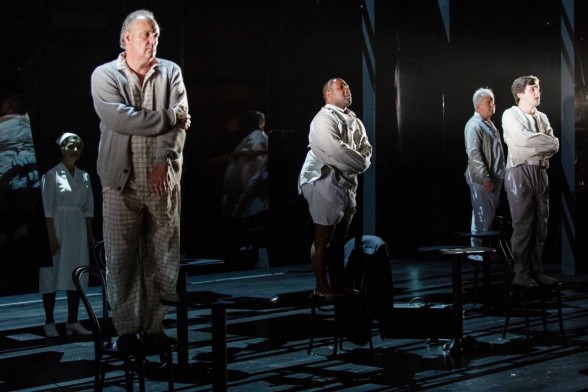
Lawrence Brownlee delivers an enchanting characterization of Charlie Parker. I first learned of Brownlee when I watched a Metropolitan Opera production on PBS; he starred in Gioachino Rossini’s Armida opposite the lovely Renee Fleming (the Meryl Streep of the opera world). I was astounded to see that he more than held his own with Fleming. Again, with Yardbird, he commands the stage with his flexible voice, using some of Schnyder’s improvisatory riffs on the finesse that made Parker such an all-time great.
Brownlee grew up in the church singing gospel music before his transition to the classical music world. To prepare for the opera’s scat-singing demands, he rummaged through YouTube, watching master improvisers like Ella Fitzgerald for inspiration. Brownlee still keeps the operatic feel in his voice, but because jazz is meant to be raw, unperfect, and spontaneous–you get the feeling in certain phrases that he’s making it up as he goes.
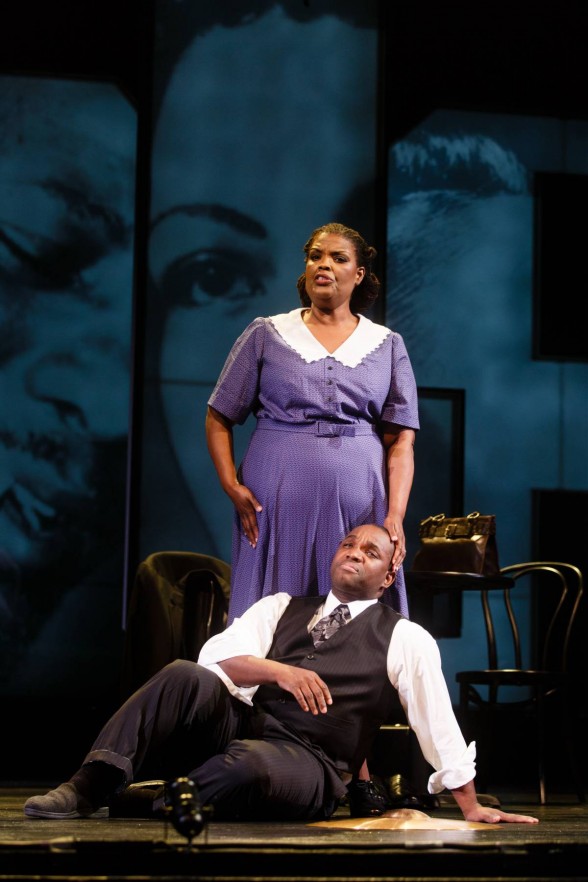
Dramatic soprano Angela Brown nearly steals the show as Addie Parker, mother of Charlie Parker. Her passionate portrayal hits a peak when she laments the struggles of being a black woman raising a black child in a white, racist world.
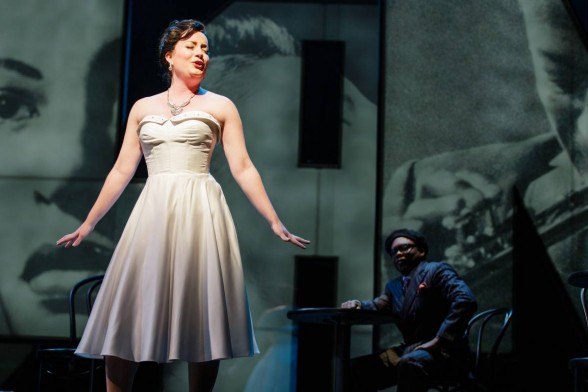
All in all, this opera shows us that even though Parker’s life was both lifted and plagued by the women who surrounded him, he was at his happiest when he was actively making music. The opera appropriately ends with the phrase, “This bird is free”. This is due to the fact that the people that mattered most to Parker made their peace with him, and he is able to depart the world knowing that he made a lasting impact.
Opera Philadelphia’s production of Charlie Parker’s Yardbird ran from June 5 – 14, 2015 at the Kimmel Center’s Perelman Theater. For more information on Opera Philadelphia, visit their website at operaphila.org.


